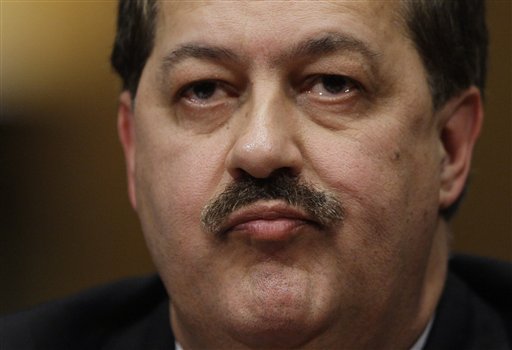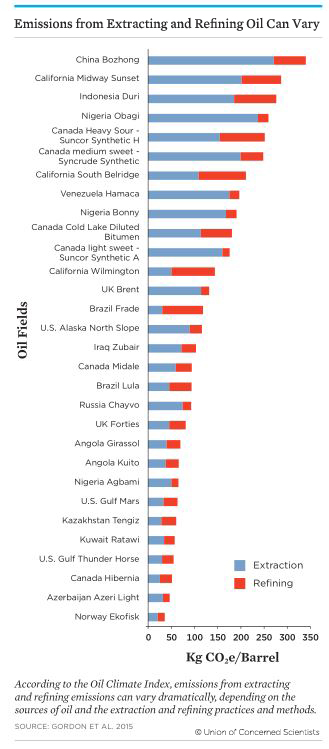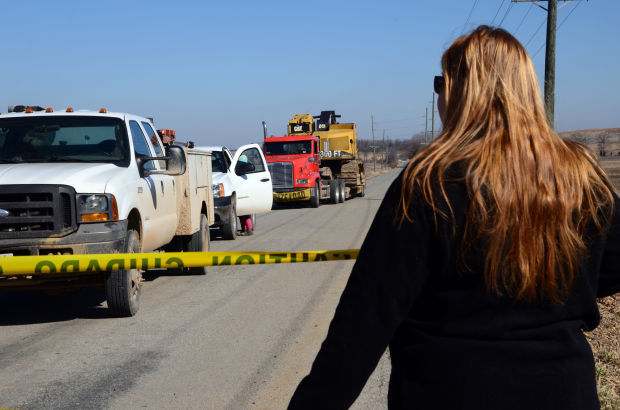Sunday, February 28, 2016
Thursday, February 25, 2016
Re: What can be done? Tip #373, don't listen to Bill Gates: "No Bill Gates, We Don’t Need ‘Energy Miracles’ To Solve Climate Change"
No Bill Gates, We Don’t Need ‘Energy Miracles’ To Solve Climate Change (Joe Romm)
I endorse this link.
I've always thought Bill Gates was full of hubris, arrogance, and bad ideas masked by tons of money and supported only by groveling non-profits who wanted a piece of it. Here's more proof of that.
Summary: on climate crisis, don't listen to Bill Gates. (In fact, he's apparently taken to plagiarizing others' ideas on top of everything else). Instead, take action to push for radical political and policy change. It's the only thing that works. ––BG
I endorse this link.
I've always thought Bill Gates was full of hubris, arrogance, and bad ideas masked by tons of money and supported only by groveling non-profits who wanted a piece of it. Here's more proof of that.
Summary: on climate crisis, don't listen to Bill Gates. (In fact, he's apparently taken to plagiarizing others' ideas on top of everything else). Instead, take action to push for radical political and policy change. It's the only thing that works. ––BG
Wednesday, February 24, 2016
Oil, volatility, and keepitintheground: St. Louis Fed: Financial Markets Are Saying Oil Will Be Worthless by mid-2019
St. Louis Fed: Financial Markets Are Saying Oil Will Be Worthless by mid-2019
This does not mean that oil will be worthless, but that financial markets are acting as if the oil price is going one way, and futures traders (who buy oil based on what they think the price will be in the future) are acting another way. Point being: we don't know what's going to happen and markets sure don't have the last word.
This does not mean that oil will be worthless, but that financial markets are acting as if the oil price is going one way, and futures traders (who buy oil based on what they think the price will be in the future) are acting another way. Point being: we don't know what's going to happen and markets sure don't have the last word.
Re: Saudi Arabia. Don't think movements make a difference? Saudis are up to their teeth in weapons but really really scared of the global #keepitintheground movement: Quit Apologizing! World Needs Fossil Fuels, Saudis Tell Oilmen
Quit Apologizing! World Needs Fossil Fuels, Saudis Tell Oilmen
I have faith in technology, says the sheikh. So keep burning oil…
I have faith in technology, says the sheikh. So keep burning oil…
Oiligarchy and the corruption of politics. In this case it's the coal-dependence lobby. We're coming to this, but file under obstacles to change, like backwards thinking legislatures, like Missouri's: RELEASE Budget Leaders Announce Effort to Fight Implementation of the EPA Clean Power Plan
RELEASE Budget Leaders Announce Effort to Fight Implementation of the EPA Clean Power Plan
"Legislators Plan to Put Language in Budget Bills to Prevent Funding of Federal Emissions Rule
"Legislators Plan to Put Language in Budget Bills to Prevent Funding of Federal Emissions Rule
JEFFERSON CITY – Budget leaders from the Missouri Senate and House announced today a plan to prevent any future funding going towards implementation of the Environmental Protection Agency’s (EPA) Clean Power Plan.
“We made a positive step forward this week thanks to U.S. Supreme Court’s ruling, but we still need to put language in place that will ultimately stop this ill-conceived rule,” said Senate Appropriations Chairman Kurt Schaefer, R-Columbia. “Estimates show this aggressive, job-destroying plan would cost $6 billion just to comply. While the Supreme Court may have slowed the implementation process down, we have an obligation as lawmakers to protect our taxpayers, businesses, and consumers.”
The EPA’s new rule includes guidelines for states to follow including cutting carbon emissions from power plants by 30 percent by 2030. The agency’s strict timelines and milestones in the Clean Power Plan would cost billions to implement. Costs would be passed onto consumers and businesses, take money out of the economy, and stall spending, innovation, investment, and job growth.
“The EPA tried to shift a huge burden of administration and implementation on to the state, the Department of Natural Resources (DNR) specifically,” said House Budget Chairman, Tom Flanigan, R-Carthage. “This is our way of taking control of our state’s resources making sure we have Missourians’ best interests in mind.”
Senate Appropriations Vice Chairman, Ryan Silvey, R-Kansas City, said they plan to put language into the appropriations bills specifying no hard-working, taxpayer dollars will fund the implementation of the plan to limit carbon emissions.
“Missouri taxpayers cannot be forced to bear the burden of this economy-killing plan and blatant overreach of the federal government,” said Silvey. “We will get the federal government out of our state’s business using the appropriations process. We know what will work best for Missouri, our businesses, and our consumers.”
“Because the EPA seems to follow no rules or answer to anyone, we need to take the steps to protect our incomes and economy,” said House Budget Vice Chairman Scott Fitzpatrick, R-Shell Knob. “We will take the reins and guide our state in the right direction.”
On the resource curse, volatility, and debt: Oil and gas producers ‘in distress’ as low oil price pain continues
Oil and gas producers ‘in distress’ as low oil price pain continues
"“We effectively had free credit for seven years and an energy transformation, so a lot of capital went into that,” said Leslie Biddle of Serengeti Asset Management, a $1.5bn US hedge fund with significant oil and gas investments. “But now the capital markets to exploration and production have shut.”
"“We effectively had free credit for seven years and an energy transformation, so a lot of capital went into that,” said Leslie Biddle of Serengeti Asset Management, a $1.5bn US hedge fund with significant oil and gas investments. “But now the capital markets to exploration and production have shut.”
Companies on the distressed list are paying interest at 10 percentage points more than Treasury rates. Standard & Poor’s (S&P) says the energy sector accounts for around 31% of the $285bn total distressed debt in the US. Some investors are attracted by the high yields on offer and a belief that the oil price of oil will soon rise. Borrowers, meanwhile, are keen to fund investment by issuing bonds in the hope the price of oil will eventually rise again.
But sentiment in the sector is worsening the longer the oil price stays low. Many traders had expected an upswing this year, but it has failed to materialise.
In the US, 35 exploration and production companies filed for bankruptcy between July 2014 and December 2015, according to a recent Deloitte report."
Tuesday, February 23, 2016
Sunday, February 21, 2016
Militarization and exceptionalism. Former Air Force General and CIA chief seeking to create normative discursive cover for what many jurists see as illegal (the US drone program): "To Keep America Safe, Embrace Drone Warfare"
Don't ever say your professor didn't offer you access to the other side of the argument. On killing civilians and children with drones in the (what I see as spurious) name of 'keeping us safe', here it is:
I don't know if that title was from the author or the NYT, but it is exceptionalist militarism (some might even say fascism, i.e. 'my country right or wrong') at its best. The least one could expect would be a verb besides "embrace"? Are you kidding me?
Click on image or here for article.
Below, two insightful comments on the article:
I don't know if that title was from the author or the NYT, but it is exceptionalist militarism (some might even say fascism, i.e. 'my country right or wrong') at its best. The least one could expect would be a verb besides "embrace"? Are you kidding me?
Click on image or here for article.
Below, two insightful comments on the article:
Coal and criminality. We'll be getting the back story on this case in a few weeks. For the moment, awaiting sentencing: "So, is Don Blankenship ‘hardly a criminal’?" « Coal Tattoo (Ken Ward)
So, is Don Blankenship ‘hardly a criminal’? « Coal Tattoo
February 18, 2016 by Ken Ward Jr.

"As the public tries to understand how six former Freedom Industries officialsreceived a total of 60 days in jail for contaminating the drinking water for 300,000 people (see here and here for some of my efforts at explaining), some folks have naturally turned their attention to the upcoming sentencing in another of former U.S. Attorney Booth Goodwin’s major white-collar criminal cases."
Read the whole story here.
February 18, 2016 by Ken Ward Jr.

"As the public tries to understand how six former Freedom Industries officialsreceived a total of 60 days in jail for contaminating the drinking water for 300,000 people (see here and here for some of my efforts at explaining), some folks have naturally turned their attention to the upcoming sentencing in another of former U.S. Attorney Booth Goodwin’s major white-collar criminal cases."
Read the whole story here.
Saturday, February 20, 2016
We'll be talking about fracking and shale, lots of money went into it, and doesn't look like it's coming back out, for now: Oil and gas producers ‘in distress’ as low oil price pain continues
Oil and gas producers ‘in distress’ as low oil price pain continues
Low oil and gas prices are close to triggering a wave of bankruptcies and debt defaults among US producers, investors fear. The fall in the oil price to levels that are punishingly low for producers is putting up to $88bn of borrowings potentially at risk.
About 30% of the oil and gas industry’s debt is now said to be at distressed levels – meaning companies are experiencing financial or operational problems severe enough to put them at risk of default or bankruptcy.
Producers, especially those fracking for shale gas, have borrowed heavily in the past few years and are now counting the cost as revenues tumble. From around $115 a barrel in July 2014, oil is now hovering nearer $30 a barrel, with fears of a continuing glut. This comes after a shale gas boom in the US coincided with low interest rates in the wake of the financial crisis.
“We effectively had free credit for seven years and an energy transformation, so a lot of capital went into that,” said Leslie Biddle of Serengeti Asset Management, a $1.5bn US hedge fund with significant oil and gas investments. “But now the capital markets to exploration and production have shut.”
Read the rest here.
Friday, February 19, 2016
Kochs Plotting Multi-Million-Dollar Assault On Electric Vehicles
On the topic of "the only thing we can do to reduce dependence on foreign oil is to consume less oil" - we have these guys and many others to thank for working against us (and our children and their children).
Kochs Plotting Multi-Million-Dollar Assault On Electric Vehicles
Kochs Plotting Multi-Million-Dollar Assault On Electric Vehicles
Coal Miners Movement emerges in southern Illinois
Coal Miners Movement emerges in southern Illinois
After decades of exploitation and abandonment, Southern Illinois needs economic transition, not more coal destruction.
After decades of exploitation and abandonment, Southern Illinois needs economic transition, not more coal destruction.
Thursday, February 18, 2016
Tar Sands – here's an updated story and graphic on the dirtiness of tarsands oil (called here, 'synthetics' or 'dilbit' of various Canadian blends): Fueling a Clean Transportation Future (2016). Union of Concerned Scientists
Climate-related transportation policies have enjoyed relative success in the United States. After years of stagnation, federal fuel economy standards were passed in 2011, increasing the efficiency of new cars and trucks. Advanced new cellulosic ethanol plants are finally ramping up, churning out low-carbon alternatives to gasoline. And more electric vehicles are on the road now than ever before.
Yet despite this progress, oil—the main ingredient in gasoline—has steadily become dirtier. The pollution associated with extracting and refining a barrel of oil has increased by nearly a third over the last decade, and now varies by a factor of more than five: from less than 50 kilograms of carbon emissions per barrel to more than 250 kilograms. These emissions represent a small share of gasoline’s total climate impact, but it’s an important one: given the global scale of oil consumption, even slight increases in oil-related emissions can have dramatic—and disastrous—consequences.
Read the rest of the article here.
Dirty coal, it will never be clean; plus, we've been breathing toxic air for years, thanks to Ameren and Peabody, and collusion in the state regulators office (MODNR): U.S. Environmental Protection Agency Signals Intent to Reject Missouri DNR’s Weak Clean Air Designation at Ameren’s Labadie Coal Plant
U.S. Environmental Protection Agency Signals Intent to Reject Missouri DNR’s Weak Clean Air Designation at Ameren’s Labadie Coal Plant
Read more here. If you want to know what S02 is, why it's scary, and how the EPA is calling out the state of Missouri for "nonattainment" of acceptable air quality because of the coal plants, here's the EPA letter: http://www3.epa.gov/airquality/sulfurdioxide/designations/round2/07_MO_resp.pdf
Read more here. If you want to know what S02 is, why it's scary, and how the EPA is calling out the state of Missouri for "nonattainment" of acceptable air quality because of the coal plants, here's the EPA letter: http://www3.epa.gov/airquality/sulfurdioxide/designations/round2/07_MO_resp.pdf
Wednesday, February 17, 2016
Talking about tar sands and pipelines today, the latest spurious corporate move: TransCanada to file 2 legal challenges to Keystone pipeline rejection
TransCanada to file 2 legal challenges to Keystone pipeline rejection
Republicans, Canadian politicians and the energy industry argued the pipeline would create thousands of jobs and inject billions into the economy. But Democrats and environmental groups latched onto Keystone as just the type of project that must be phased out if the world is to seriously combat climate change.
Republicans, Canadian politicians and the energy industry argued the pipeline would create thousands of jobs and inject billions into the economy. But Democrats and environmental groups latched onto Keystone as just the type of project that must be phased out if the world is to seriously combat climate change.
Tuesday, February 16, 2016
More on Saudi Arabia amidst the oil glut: Young Saudis See Cushy Jobs Vanish Along With Nation’s Oil Wealth
Young Saudis See Cushy Jobs Vanish Along With Nation’s Oil Wealth
But the fat years left the economy poorly structured, economists say: 90 percent of government revenues are from oil; 70 percent of working Saudis are employed by the government; and even the private sector remains heavily dependent on government spending. ...Saudi Arabia still has room to maneuver, he said, thanks to large cash reserves, low public debt and lots of new infrastructure that can aid economic growth. But the generational differences are clear…. Economists say that at least 250,000 young Saudis enter the job market every year, and that making them effective members of the work force is a major challenge.
But the fat years left the economy poorly structured, economists say: 90 percent of government revenues are from oil; 70 percent of working Saudis are employed by the government; and even the private sector remains heavily dependent on government spending. ...Saudi Arabia still has room to maneuver, he said, thanks to large cash reserves, low public debt and lots of new infrastructure that can aid economic growth. But the generational differences are clear…. Economists say that at least 250,000 young Saudis enter the job market every year, and that making them effective members of the work force is a major challenge.
Monday, February 15, 2016
Thursday, February 11, 2016
Students: What can be done? Follow the lead of Coal Ash Chronicles, testify, speak out, resist: U.S. Commission on Civil Rights: Rhiannon Fionn’s Testimony + How You Can Comment | Coal Ash Chronicles
U.S. Commission on Civil Rights: Rhiannon Fionn’s Testimony + How You Can Comment | Coal Ash Chronicles
How coal ash pollution is a civil rights violation
How coal ash pollution is a civil rights violation
Saudi Arabia: Meet the big four of the government
The Big Four in Saudi Arabia’s Government
MIKAYLA BOUCHARD http://www.nytimes.com/interactive/2016/01/24/world/middleeast/the-big-four-in-saudi-arabia-government.html?emc=eta1
 |
| King Salman bin Abdulaziz of Saudi Arabia in Riyadh.CreditFayez Nureldine/Agence France-Presse — Getty Images |
A Lesson for dealing with big, crooked corporations: they lie, they hire crooked lawyers and scientists, and the struggle will be long
Not about fossil fuels, but thanks to a student for drawing my attention to this article about DuPont, another criminal corporation, like many of our friends in the fossil fuel industry.
http://www.nytimes.com/2016/01/10/magazine/the-lawyer-who-became-duponts-worst-nightmare.html
http://www.nytimes.com/2016/01/10/magazine/the-lawyer-who-became-duponts-worst-nightmare.html
Wednesday, February 10, 2016
Coal/Peabody: Can't keep up with coal company destruction: Here is a story on Rocky Branch, with whom we've tried to show some solidarity in recent years. Peabody went in, stripped til the price drop, and is now laying people off. Judy Kellen: Why'd they ever come in in the first place?
Saudi Arabia: Beheadings highest in recent history
From the Guardian, January, 2016.
http://www.theguardian.com/world/2016/jan/02/saudi-arabia-beheadings-reach-highest-level-in-two-decades
16 year old sentenced to death for participating in protest rally.
http://www.theguardian.com/world/2015/dec/17/family-teenage-saudi-protester-abdullah-al-zaher-sentenced-death-appeal-life
http://www.theguardian.com/world/2016/jan/02/saudi-arabia-beheadings-reach-highest-level-in-two-decades
 |
| Activists holding a sign that reads “Don’t kill” protest against the execution of a Lebanese man in Saudi Arabia. Photograph: Bilal Hussein/AP |
16 year old sentenced to death for participating in protest rally.
http://www.theguardian.com/world/2015/dec/17/family-teenage-saudi-protester-abdullah-al-zaher-sentenced-death-appeal-life
Tuesday, February 9, 2016
Monday, February 8, 2016
Friday, February 5, 2016
People are always asking, What should be done? Well, the first step is to recognize that (a) corporate control is doing nothing except further erode democracy (b) neither technology nor markets alone have the answer, and (c) recycling and 'sustainability lite' is not going to get us there, so think radically. Start here, with Naomi Klein: “There are no non-radical options left before us”
Naomi Klein: “There are no non-radical options left before us”
MICHAEL WINSHIP, BILLMOYERS.COM via Salon
Highlights:
"we find ourselves in this moment where there are no non-radical options left before us. Change or be changed, right? And what we mean by that is that climate change, if we don’t change course, if we don’t change our political and economic system, is going to change everything about our physical world. And that is what climate scientists are telling us when they say business as usual leads to three to four degrees Celsius of warming. That’s the road we are on. We can get off that road, but we’re now so far along it, we’ve put off the crucial policies for so long, that now we can’t do it gradually. We have to swerve, right? And swerving requires such a radical departure from the kind of political and economic system we have right now that we pretty much have to change everything."
"We have to change the kind of free trade deals we sign. We would have to change the absolutely central role of frenetic consumption in our culture. We would have to change the role of money in politics and our political system. We would have to change our attitude towards regulating corporations. We would have to change our guiding ideology."
"we are not going to do the things that we need to do unless we engage in a battle of ideas."
"We have examples of this working. Germany has created 400,000 jobs in their energy transition. And so much of it is decentralized and community-owned, 900 new energy cooperatives in Germany."
And this is why I think when we think about shifting our energy from fossil fuels to renewables, it isn’t just sort of flipping a switch. It really is a paradigm shift because what fossil fuels sold was the illusion that it doesn’t matter where you live, the illusion of separateness from nature and dominance.
"So we’re not talking about reversing climate change. We’re talking about preventing catastrophic climate change, which is the road we’re on. At the same time as we can do everything possible to get to 100 percent renewable energy. It does mean reducing demand. But the issue around energy demand is much more about the consumption habits of a small minority of the world’s population than it is about numbers of people on Earth. It is a relatively small percentage of people on this planet who are responsible for the vast majority of emissions. Thomas Piketty has done a really interesting breakdown of the connection around wealth and emissions, showing that we really are talking about 10 percent of the world’s population being responsible for the vast majority of emissions.
"And it’s not about saying, “Well, don’t worry about fighting for $15 dollars an hour, you should care about climate change.” It’s about saying, “We can create millions of living-wage jobs in public transit and in renewable energy, in reimaging our cities, we can improve our services, if we take this crisis seriously, if we engage in this battle of ideas.”
READ the entire interview here: Naomi Klein: “There are no non-radical options left before us”
MICHAEL WINSHIP, BILLMOYERS.COM via Salon
Highlights:
"we find ourselves in this moment where there are no non-radical options left before us. Change or be changed, right? And what we mean by that is that climate change, if we don’t change course, if we don’t change our political and economic system, is going to change everything about our physical world. And that is what climate scientists are telling us when they say business as usual leads to three to four degrees Celsius of warming. That’s the road we are on. We can get off that road, but we’re now so far along it, we’ve put off the crucial policies for so long, that now we can’t do it gradually. We have to swerve, right? And swerving requires such a radical departure from the kind of political and economic system we have right now that we pretty much have to change everything."
"We have to change the kind of free trade deals we sign. We would have to change the absolutely central role of frenetic consumption in our culture. We would have to change the role of money in politics and our political system. We would have to change our attitude towards regulating corporations. We would have to change our guiding ideology."
"we are not going to do the things that we need to do unless we engage in a battle of ideas."
"We have examples of this working. Germany has created 400,000 jobs in their energy transition. And so much of it is decentralized and community-owned, 900 new energy cooperatives in Germany."
And this is why I think when we think about shifting our energy from fossil fuels to renewables, it isn’t just sort of flipping a switch. It really is a paradigm shift because what fossil fuels sold was the illusion that it doesn’t matter where you live, the illusion of separateness from nature and dominance.
"So we’re not talking about reversing climate change. We’re talking about preventing catastrophic climate change, which is the road we’re on. At the same time as we can do everything possible to get to 100 percent renewable energy. It does mean reducing demand. But the issue around energy demand is much more about the consumption habits of a small minority of the world’s population than it is about numbers of people on Earth. It is a relatively small percentage of people on this planet who are responsible for the vast majority of emissions. Thomas Piketty has done a really interesting breakdown of the connection around wealth and emissions, showing that we really are talking about 10 percent of the world’s population being responsible for the vast majority of emissions.
"And it’s not about saying, “Well, don’t worry about fighting for $15 dollars an hour, you should care about climate change.” It’s about saying, “We can create millions of living-wage jobs in public transit and in renewable energy, in reimaging our cities, we can improve our services, if we take this crisis seriously, if we engage in this battle of ideas.”
 |
| Naomi Klein (Credit: naomiklein.org/Ed Kashi) |
READ the entire interview here: Naomi Klein: “There are no non-radical options left before us”
Monday, February 1, 2016
OK, this would be historic, will be talking about the long history of this relationship of the "gift" in a week or two, for the moment, consider this: ========== "End All U.S. Support for the Government of Saudi Arabia"
"End All U.S. Support for the Government of Saudi Arabia"
Statement by the Campaign for Peace and Democracy
Statement by the Campaign for Peace and Democracy
January 15, 2016
End All U.S. Support for the Government of Saudi Arabia
We call on the Obama administration to end the U.S. alliance with Saudi Arabia and to stop providing the Saudi regime with military and diplomatic support. The execution in January of Sheikh Nimr al–Nimr, an opponent of both Sunni and Shiite sectarianism and an advocate of a non-violent strategy, is only the most recent example of the barbarity of the Saudi dictatorship; the government carried out at least 157 executions in 2015, many of them by grisly beheadings.1 Saudi Arabia's outrageous oppression of women is well known and, as Amnesty International has documented, the regime systematically represses dissent with flogging and other forms of torture, equates criticism of the government and other peaceful activities with terrorism, and continues to discriminate against the country's Shia minority. Washington has issued only pro–forma expressions of "concern" about these human rights violations, while in practice maintaining solid support for the Saudi regime.
The Saudi Kingdom has long played a reactionary role across the Middle East with such actions as supporting Egyptian dictator Hosni Mubarak to the bitter end and then supporting the repressive Sisi regime that came to power in a coup. When the Arab Spring spread to Bahrain, the Saudi government sent troops into that country to buttress the brutal repression of protesters. In Yemen, the Saudis are engaging in indiscriminate bombings resulting in the death of thousands of innocent civilians. Notwithstanding Saudi Arabia's reactionary domestic and regional policies, the Obama administration has approved new arms sales agreements with the regime, amounting to $50 billion, while American companies train thousands of Saudi military personnel. And Washington supports Saudi Arabia's deadly war in Yemen, supplying bombs (including deadly cluster bombs), refueling, and logistical assistance.
READ THE ENTIRE PETITION HERE: "End All U.S. Support for the Government of Saudi Arabia"
What's the best way to get some insights into the current moment of coal? Well, you could do some anthropological fieldwork at a coal conference (or be lucky there is a great journalist out there doing it for us): Here's Kuykendall on #CoalTransUSA 2016 (with images, tweets) · taykuy727
#CoalTransUSA 2016 (with images, tweets) · taykuy727
Click on the link above, and take some time to enjoy the feel of coal men's industry talk. And maybe have a bit of schadenfreude,* if like me, you are tired of coal-CEOs blowing smoke.
Despite my distaste for the big men of the coal industry, I maintain my respectful solidarity with coal miners – how to pursue justice with labor and new economies in coal regions is another story.
*
Click on the link above, and take some time to enjoy the feel of coal men's industry talk. And maybe have a bit of schadenfreude,* if like me, you are tired of coal-CEOs blowing smoke.
Despite my distaste for the big men of the coal industry, I maintain my respectful solidarity with coal miners – how to pursue justice with labor and new economies in coal regions is another story.
*

Once Unstoppable, Tar Sands Now Battered from All Sides by Ed Struzik: Yale Environment 360
Once Unstoppable, Tar Sands Now Battered from All Sides by Ed Struzik: Yale Environment 360
Good news.
Note to Trudeau: Invest government support to transition economies, regions, to new jobs, infrastructures.
Good news.
Note to Trudeau: Invest government support to transition economies, regions, to new jobs, infrastructures.
Subscribe to:
Comments (Atom)












